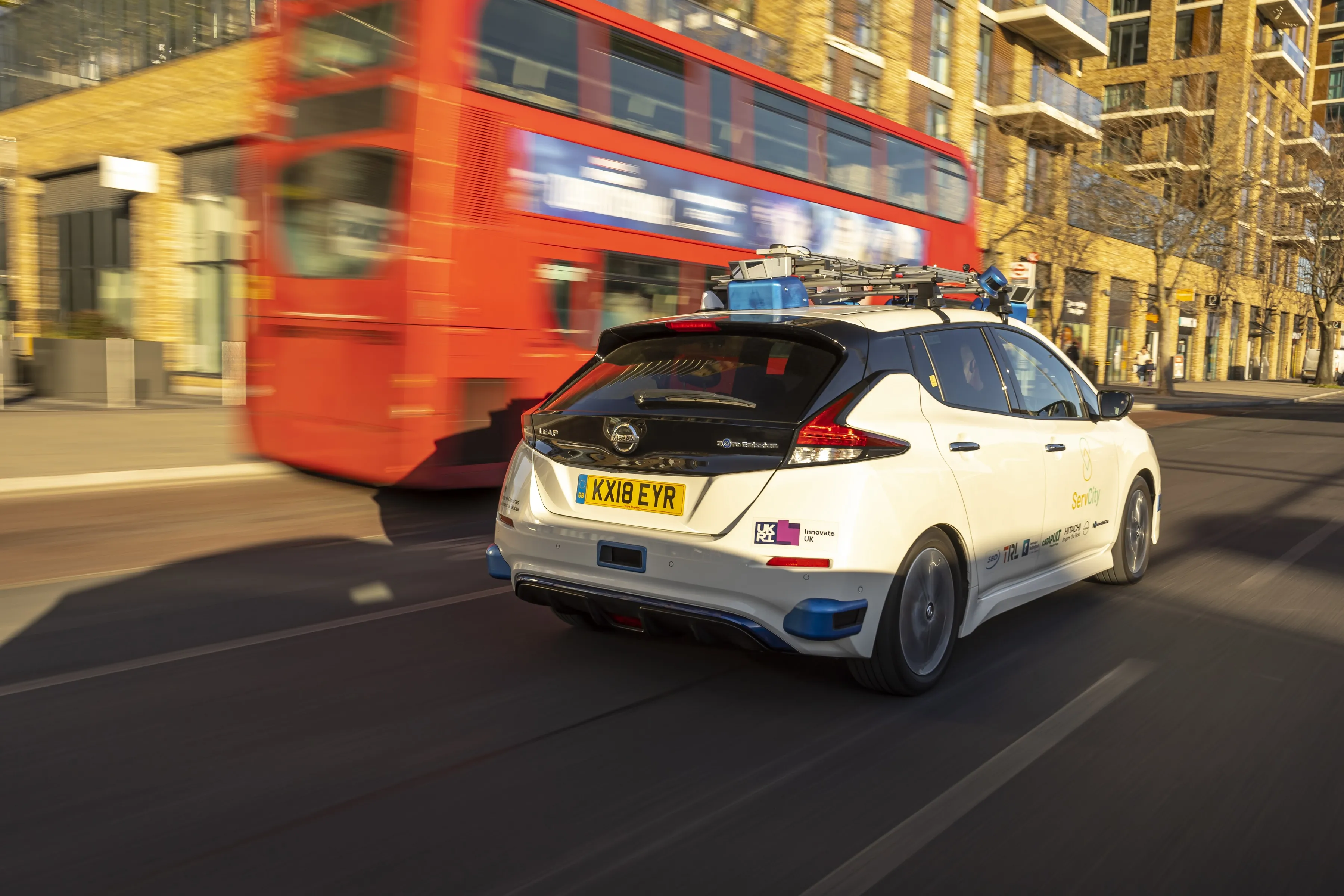
TRL says the latest trial at its testbed demonstrated the potential for receiving live data from road infrastructure to improve the decision-making abilities of connected and autonomous vehicles (C/AVs).
Smart Mobility Living Lab (SMLL), the testbed in south London, hosted the ServCity project, which saw a Nissan Leaf self-driving around the streets of Woolwich.
“The trial was designed to test the effectiveness of messages being sent from fixed points at the roadside to vehicles moving in live traffic," explains James Long, head of technical consulting at SMLL.
"ServCity has investigated the requirements for latency, message frequency, and message content, along with the timing and location of when and where messages should be received by the vehicle to cater to different use cases.”
“These insights have been instrumental in determining the optimal placement of connected infrastructure for both transmitting and receiving information, and the conditions necessary for the vehicle to trust the message content," Long added.
TRL says new features on the testbed extend the scenarios available to validate C/AV performance without needing specific safety cases for every operational design domain (ODD).
The new sources of data enable the vehicle to make timely decisions about navigating smoothly through congested traffic - although the main concern from engineers was whether to trust this information.
TRL says one of the key highlights was sending messages from a bus stand to alert the C/AV to the presence of a bus in the running lane by the stand.
From this, researchers found that receiving messages from the stand (which was out of sight around a corner) approximately 250m ahead "did not provide sufficient warning for the vehicle to make a lane change in advance—it needed to have the information 700m ahead of the corner to be beneficial".
The testbed now includes a dense residential neighbourhood - and researchers found that multiple consecutive messages were necessary for a C/AV to respond appropriately to alerts of a parked vehicle blocking the road.
ServCity also looked at how Vehicle to Everything (V2X) systems could function in the future, for instance how and where data would be processed.
“Real-world testing at the SMLL testbed is crucial for validating system and service designs and accelerating time to full deployment,” adds Long. “With the success of ServCity, SMLL has greatly expanded its database of scenarios that serve as proxies for the safety assurance requirements for C/AVs, similar to passing a hazard perception test."









